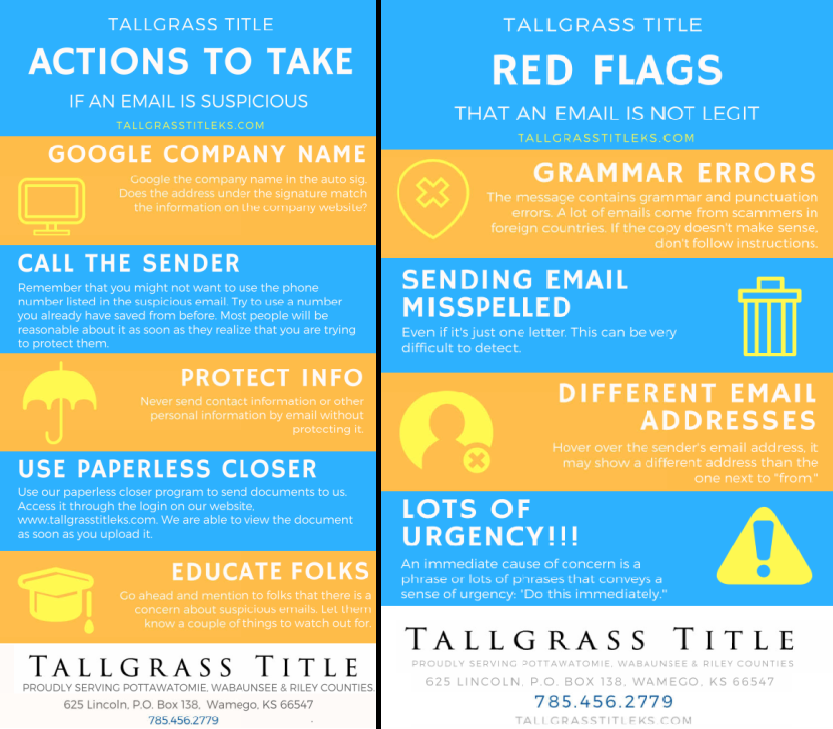Here at Tallgrass Title, we have discussed many topics about the nuts and bolts of real estate transactions: closings, probates, commitments, policies, etc. But what is title insurance and how does it actually work?
Title insurance is essentially insurance that either insures that you actually own a tract of real estate and/or that a bank’s mortgage is valid and filed of record. Title insurance, like other types of insurance, is governed by the individual state. Insurance in Kansas is established and governed by state statutes that establish the types of insurance allowed to be sold in the state and various regulations governing the sale. The major types are life, health, hazard, liability, property and title. Further, Kansas Statutes establish the Kansas Insurance Department and Commissioner of Insurance. The Kansas Commissioner of Insurance is tasked with enforcing Kansas Statutes relating to insurance, licensing and regulating the sale of insurance.
When purchasing an insurance policy, an individual or entity enters into a contract with the insurance company. The contract establishes the amount of coverage sold, the terms of the policy, exceptions to coverage and what constitutes a claim. Kansas state law also establishes how fees are established and charged, how the money is accumulated, and who is entitled to the proceeds. This ensures that when a claim (loss) happens, that the insurance company has retained sufficient funds to pay potential claims. Otherwise, an unscrupulous company could sell policies and spend the premiums paid and then be without sufficient funds to pay a claim. For example, if a consumer purchases a title policy insuring the person as an owner of the real estate with a policy amount of $100,000 and it is later shown that the property is actually owned by another party, a title insurance company is bound to pay up to the amount of $100,000 loss. Now, there are a multitude of corrective measures and potential outcomes of any claim. The bottom line is that a title insurance company is bound to hold a certain amount per $1000 of insurance sold for potential claims.
Kansas insurance statutes also require that reinsurance be purchased when a particular title insurance company’s “reserve” or “pool” is not large enough to cover the size of policy sold by the company. This is done by purchasing reinsurance from another title company or other insurance company. This protects the customer from an insurance company failing to have the reserves to cover certain sized policies.
In Kansas, most title insurance is sold through independent agents (including Tallgrass Title!). An independent agent sells title insurance on behalf of a title insurance company, otherwise known as an underwriter. An underwriter and independent agent enter into an agreement allowing the independent agent to sell its title policies with a certain division of the premiums. Here at Tallgrass Title, we currently write title policies for three underwriters. In our experience, each offers a unique product and the variety of options available allows us to better serve our customers.
In the end, title insurance is simply another form of coverage that specifically protects property rights. Here at Tallgrass Title, we are proud to serve our customers in this regard. This includes explaining any aspect of your real estate transaction or title policy. If you have a question, feel free to ask one of our real estate professionals. We love to talk title!



